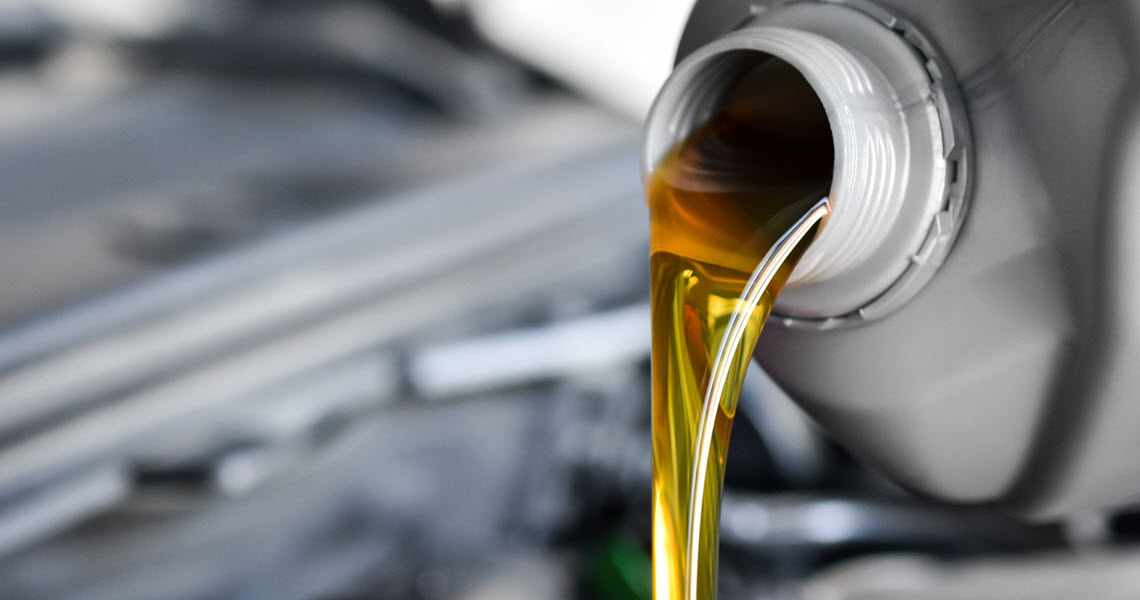How Your BMW Benefits from Regular Oil Changes
- August 19, 2023
- BMW Repair
- Posted by Charles Oehmke
- Comments Off on How Your BMW Benefits from Regular Oil Changes
 In the intricate symphony of mechanical components that comprise your BMW, one element plays a lead role in ensuring its longevity, performance, and overall health: oil. Regular oil changes are not just routine maintenance tasks; they are essential rituals that contribute significantly to the well-being of your BMW. The critical importance of consistent oil changes for your BMW’s engine should not be overlooked, along with the potential risks that come with neglecting this crucial maintenance.
In the intricate symphony of mechanical components that comprise your BMW, one element plays a lead role in ensuring its longevity, performance, and overall health: oil. Regular oil changes are not just routine maintenance tasks; they are essential rituals that contribute significantly to the well-being of your BMW. The critical importance of consistent oil changes for your BMW’s engine should not be overlooked, along with the potential risks that come with neglecting this crucial maintenance.
The Essence of Regular Oil Changes: Nurturing Your BMW’s Heart
The engine, often referred to as the heart of a car, is where the real magic happens. It’s a complex interplay of moving parts working in harmony to produce power and performance. This intricate choreography demands optimal lubrication and protection, and this is where the role of oil comes into play. Regular oil changes are like the lifeblood that nourishes and sustains your BMW’s engine, ensuring that it operates seamlessly and efficiently.
The Importance of Consistent Oil Changes: Fueling Longevity and Performance
The significance of consistent oil changes cannot be overstated. Engine oil serves as both a lubricant and a coolant, providing a protective layer between the engine’s moving parts and reducing friction-induced wear and tear. As you drive, the oil gradually degrades, losing its ability to effectively perform its duties. Regular oil changes ensure a fresh infusion of clean, high-quality oil, which in turn enhances engine longevity, optimizes performance, and prevents unnecessary wear.
Risks of Neglecting Oil Changes: The Domino Effect
Neglecting regular oil changes can set off a domino effect of detrimental consequences for your BMW’s engine and overall performance.
- Engine Wear: Over time, the lack of proper lubrication due to old or degraded oil can lead to increased friction and wear on critical engine components. This wear can result in reduced engine efficiency, diminished power output, and even potential breakdowns.
- Overheating: Engine oil also serves as a coolant, helping to dissipate heat generated during combustion. Inadequate lubrication and compromised heat dissipation can lead to engine overheating, which can cause irreparable damage to engine components.
- Reduced Efficiency: Deteriorated oil loses its ability to effectively reduce friction and minimize resistance within the engine. This can lead to decreased fuel efficiency, translating to more frequent visits to the gas station and increased operational costs.
- Impaired Performance: Neglected oil changes can manifest as sluggish acceleration, rough idling, and a general sense of reduced engine responsiveness. This can significantly impact your driving experience and the pleasure of driving a BMW.
The Perks of Regular Oil Changes: A Symphony of Advantages
- Engine Longevity: Regular oil changes extend the life of your BMW’s engine by reducing wear and maintaining optimal lubrication.
- Optimal Performance: Clean, fresh oil allows the engine to operate at its peak efficiency, ensuring smoother acceleration, improved throttle response, and consistent power delivery.
- Improved Fuel Efficiency: Properly lubricated and efficiently operating engine components result in better fuel economy, saving you money at the pump.
- Consistent Power: Regular oil changes contribute to a steadier and more predictable power output, enhancing your overall driving experience.
- Environmental Benefit: Cleaner engines produce fewer emissions, making regular oil changes an environmentally responsible practice.
How to Perform Regular Oil Changes: A Step-By-Step Guide
- Know Your BMW: Consult your BMW owner’s manual to determine the manufacturer’s recommended oil change interval for your specific model.
- Choose Quality Oil: Select the type of oil recommended by BMW. Opt for high-quality synthetic oil for its superior protection and extended longevity.
- Gather Tools and Supplies: Ensure you have all the necessary tools and supplies, including an oil filter wrench, a drain pan, a new oil filter, and the correct amount and type of oil.
- Prepare Your BMW: Safely raise your BMW using a car lift or jack stands to access the undercarriage. Ensure the engine is not hot to avoid burns.
- Drain the Old Oil: Place the drain pan beneath the oil drain plug and remove the plug to drain the old oil.
- Replace the Oil Filter: Remove the old oil filter and replace it with a new, high-quality oil filter.
- Add Fresh Oil: Pour the recommended amount and type of fresh oil into the engine through the oil filler cap.
- Check Oil Level: Use the dipstick to check the oil level and ensure it is within the recommended range.
- Dispose of Old Oil Properly: Dispose of the old oil and filter in an environmentally responsible manner, adhering to local regulations.
Embrace Professional Expertise at Nikolas Motorsport
Regular oil changes are not just a mundane task; they are a  commitment to the longevity, performance, and health of your BMW. Neglecting this simple yet vital maintenance can lead to a cascade of problems that affect your driving experience and efficiency. For professional expertise in BMW repairs, contact us at Nikolas Motorsport in Pontiac, MI. We welcome drivers from the Bloomfield Hills, Farmington Hills, Rochester Hills, Royal Oak, Troy, and the surrounding areas!
commitment to the longevity, performance, and health of your BMW. Neglecting this simple yet vital maintenance can lead to a cascade of problems that affect your driving experience and efficiency. For professional expertise in BMW repairs, contact us at Nikolas Motorsport in Pontiac, MI. We welcome drivers from the Bloomfield Hills, Farmington Hills, Rochester Hills, Royal Oak, Troy, and the surrounding areas!

